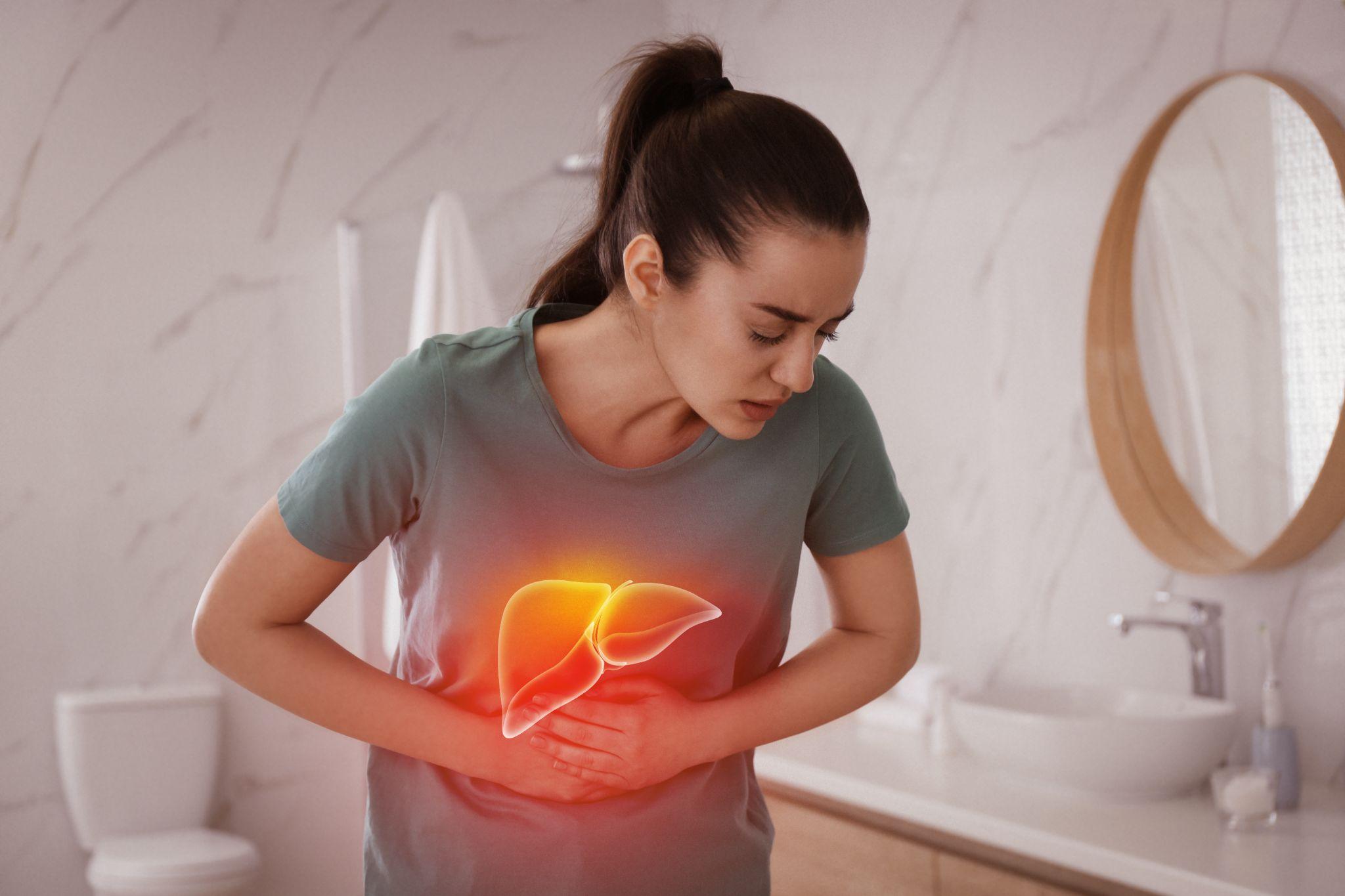Alcohol consumption is a common part of many social activities, but excessive drinking can severely impact your liver. Understanding how alcohol affects your liver and the steps you can take to repair the damage is crucial for long-term health.
Alcohol and the Liver
The liver plays a vital role in detoxifying your body, metabolizing nutrients, and producing essential proteins. When you consume alcohol, your liver works to break it down and remove it from your bloodstream. However, excessive alcohol consumption overwhelms the liver, leading to tissue damage and a range of liver diseases.
When you drink alcohol, it’s metabolized into acetaldehyde, a toxic substance that can cause inflammation and scarring in the liver. Chronic alcohol abuse can result in the accumulation of fat in liver cells, triggering a cycle of inflammation, cell death, and fibrosis. Over time, this damage can progress to more severe liver diseases.1
What Is Alcoholic Fatty Liver Disease (AFLD)?
Alcoholic fatty liver disease (AFLD) is the earliest stage of alcohol-related liver damage. It occurs when fat builds up in liver cells due to excessive alcohol intake. AFLD is often asymptomatic, meaning you might not notice any symptoms until the condition progresses.
Common symptoms of AFLD include:
- Fatigue
- Weakness
- Discomfort in the upper right abdomen
- Unexplained weight loss
Diagnosis typically involves blood tests to check liver function, imaging tests like ultrasounds, and sometimes a liver biopsy to assess the extent of fat accumulation and inflammation.
If AFLD is detected early, lifestyle changes such as stopping alcohol consumption and improving diet and exercise habits can help reverse the condition. Doctors might also recommend regular monitoring and follow-up tests to ensure the liver is healing properly.
What Is Alcoholic Hepatitis?
Alcoholic hepatitis is a more severe form of liver inflammation caused by excessive alcohol consumption. This condition can develop suddenly and may be life-threatening if not addressed promptly.
Common symptoms of alcoholic hepatitis include:
- Jaundice (yellowing of the skin and eyes)
- Abdominal pain
- Nausea
- Vomiting
- Fever
- Fatigue
Diagnosing alcoholic hepatitis involves blood tests to measure liver enzymes, bilirubin levels, and liver function. Imaging studies and liver biopsies can also help determine the severity of the condition.
Treatment usually requires hospitalization, especially in severe cases. Doctors may prescribe medications to reduce liver inflammation and manage symptoms. Abstaining from alcohol is crucial, and patients might also need nutritional support and lifestyle changes to aid recovery. The outlook depends on the severity of the condition and how quickly it is addressed.
What Is Cirrhosis?
Cirrhosis is the most advanced stage of alcohol-related liver disease, characterized by extensive scarring and irreversible damage to liver tissue. This condition significantly impairs the liver’s ability to function and can lead to liver failure.
Common symptoms of cirrhosis include:
- Jaundice
- Severe fatigue
- Swelling in the legs and abdomen
- Easy bruising
- Confusion
Diagnosing cirrhosis involves a combination of blood tests, imaging studies, and liver biopsies to evaluate the extent of scarring and liver function.
Once cirrhosis is diagnosed, managing the condition focuses on slowing its progression and treating symptoms. This might include medications, lifestyle changes, and in severe cases, considering a liver transplant. Regular medical check-ups and monitoring are essential to manage complications and improve the quality of life. The prognosis depends on the extent of liver damage and the effectiveness of treatment in halting further damage.

How to Reverse Liver Damage From Alcohol
It is possible to repair some liver damage from alcohol use, but it’s not easy or guaranteed. The sooner the damage is caught and drinking stops, the better the chance for the liver to heal and work well. However, even if some liver function is regained, it might not work like new. At a certain point, the liver tissue can’t recover on its own. That’s why preventing liver damage by limiting alcohol and staying healthy is so important.
Repairing liver damage from alcohol involves a multi-faceted approach that includes lifestyle changes, medical treatments, and ongoing support.
Lifestyle Changes
Lifestyle changes that can help repair liver damage include:
- Abstinence From Alcohol: The first and most crucial step is to stop drinking alcohol Abstinence allows your liver to start the healing process and prevents further damage.
- Healthy Diet: Eating a balanced diet rich in fruits, vegetables, lean proteins, and whole grains supports liver health. Avoiding fatty, sugary, and processed foods can reduce additional stress on the liver.
- Regular Exercise: Physical activity helps maintain a healthy weight, reduce fat buildup in the liver, and improve overall health.
Medical Treatments
Medical treatments that can help manage symptoms and support liver repair include:
- Medications: Doctors may prescribe medications to reduce inflammation, manage symptoms, and address complications related to liver damage.
- Nutritional Support: In severe cases, patients might require vitamin and mineral supplements to address deficiencies caused by liver disease.
- Liver Transplant: For individuals with advanced cirrhosis or liver failure, a liver transplant may be the only option for survival. This involves replacing the damaged liver with a healthy one from a donor.
Ongoing Support
Ongoing support is essential for long-term recovery, protecting the liver from damage that could be caused by relapse. Examples include:
- Counseling and Therapy: Emotional and psychological support is crucial for individuals recovering from alcohol addiction. Counseling and therapy can help address underlying issues, develop coping strategies, and prevent relapse.
- Support Groups: Joining support groups such as Alcoholics Anonymous (AA) provides a network of individuals who understand the challenges of addiction and offer mutual support.
Begin Healing the Physical and Emotional Damage of Addiction Today
It’s never too late to begin healing and move toward a healthier life. If you or a loved one is struggling with alcohol addiction, seeking professional help as soon as possible is a critical first step. At Lumina Recovery, we offer comprehensive alcohol addiction treatment programs tailored to your needs, combining medical care, counseling, and personalized support to help you heal physically and emotionally from the damage and pain caused by substance abuse.
Contact us today to start your journey toward recovery and a healthier future.
Sources:


